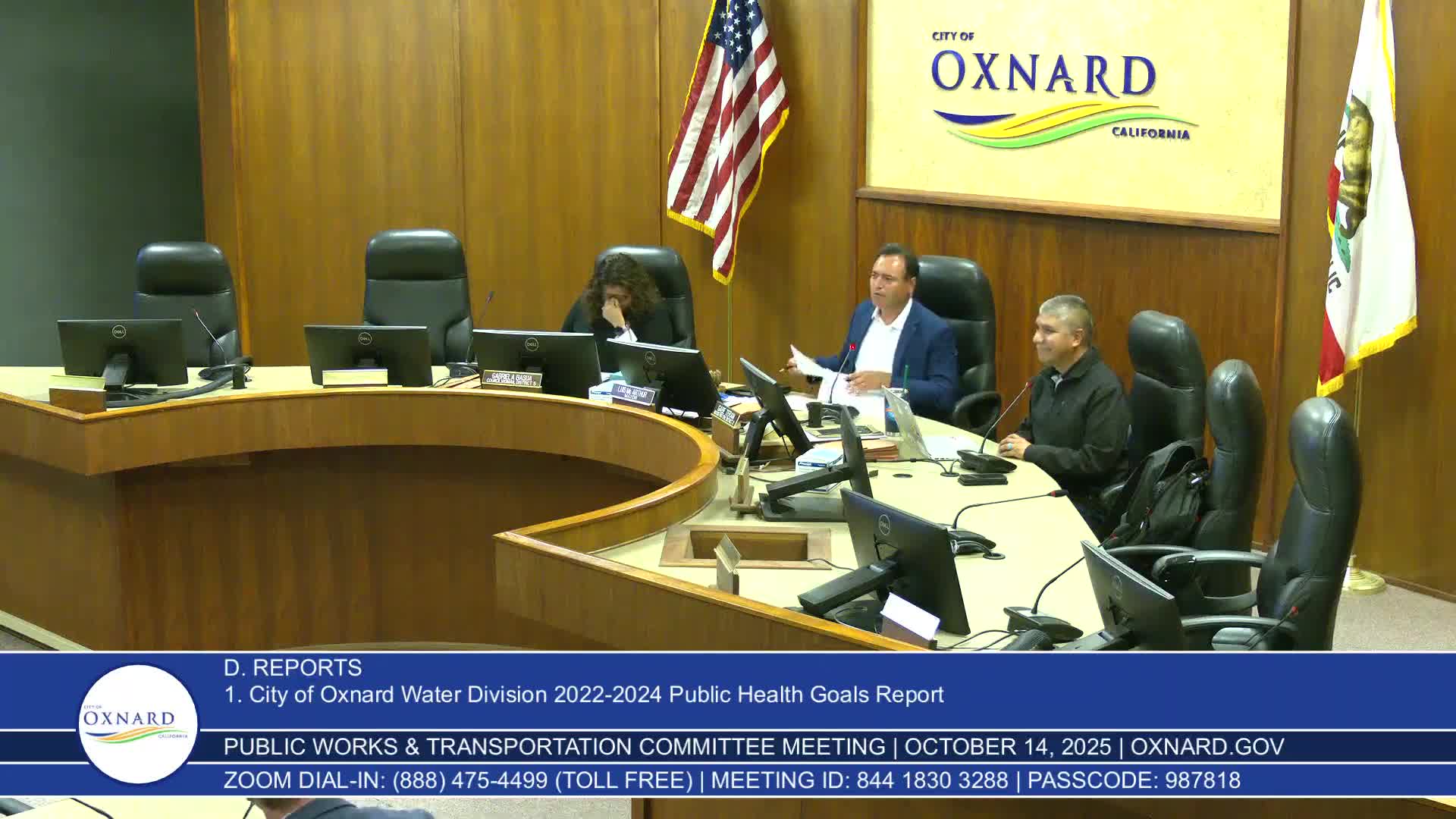Oxnard committee recommends council approve up to $27.5 million WEX Bank fleet fuel purchase order
Get AI-powered insights, summaries, and transcripts
Subscribe
Summary
The committee recommended the City Council authorize annual purchase orders with WEX Bank for a fleet fuel card program under a Sourcewell cooperative contract, with an initial term and options totaling up to $27.5 million and safeguards discussed for card usage and electric-vehicle transition.
The Oxnard City Public Works and Transportation Committee on Oct. 14 recommended that the City Council approve and authorize the purchasing agent to execute annual purchase orders with WEX Bank for the city’s fleet fuel card program under a Sourcewell cooperative contract. The initial contract capacity would cover 12/7/2025 through 6/27/2029, with options to extend up to 6/27/2032, and a total not-to-exceed amount of $27,500,000.
Staff told the committee the requested amount is based on recent multi-year usage averages and includes a prudent allowance for inflation and fuel-price variability. Procurement staff explained that the Sourcewell cooperative already competitively procures vendors such as WEX Bank, enabling the city to use Sourcewell pricing rather than running a separate solicitation.
On safeguards and oversight, staff described multiple controls on WEX cards: per-card dollar or volume caps, transaction-pattern monitoring and automated locks, and the ability to audit transactions and request merchant surveillance if needed. Jose Bridal, Fleet Services Manager, said the vendor’s system “uses some AI technology that, learns your patterns. And if they see something that’s out of those patterns, it’ll automatically lock that card.” Staff added that the city can set caps tied to expected consumption per vehicle and reconcile fuel gallons to vehicle capacity.
Committee members asked about the city’s electric vehicle (EV) fleet and charging infrastructure as fuel use shifts. Jose Bridal said Oxnard currently operates 10 electric vehicles, including passenger vans and Ford Lightning pickups, and is converting two vans to replace F-450 service-body trucks for certain street/traffic tasks. The fleet shop has two EV chargers in service and staff are installing four additional chargers at city yards and exploring a larger partnership with Southern California Edison.
Committee members also queried contingency steps if fuel costs rise above budgeted levels. Staff emphasized that the committee action concerns contract capacity rather than the annual operating budget; if fuel use or prices materially exceed expectations, staff would return to council for budget adjustments. The committee voted 3-0 to recommend council approval.
